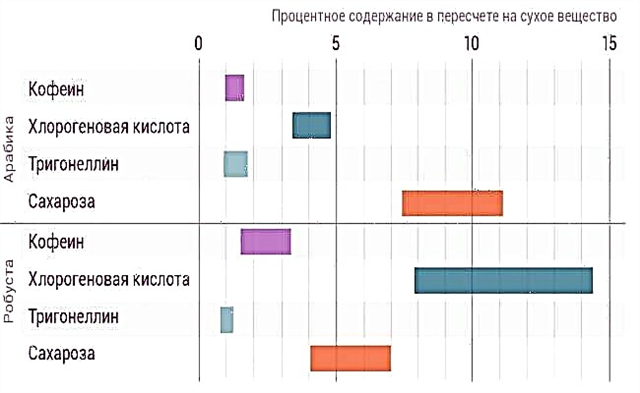Tonsillitis is a condition in which the tonsils become inflamed. Where does the inflammatory process come from? This is how the body reacts to the penetration of various harmful microorganisms - viruses, bacteria and fungi.
It is very important to know if tonsillitis is contagious and when it can be transmitted from a sick person to a healthy person. This will help to take timely measures to prevent the development of the disease. Thus, you can preserve not only your health, but also the health of your loved ones. Consider the main methods of infection with angina, how its incubation period passes and what types of the disease are not contagious.
Ways of entry of harmful microflora into the body
As already mentioned, the causative agents of sore throat, before causing the disease, penetrate the body. How does this happen?
 So, tonsillitis is transmitted in three ways:
So, tonsillitis is transmitted in three ways:
- airborne (most common);
- alimentary (eating food containing the pathogen and poor hand hygiene);
- in the process of direct contact with tissue affected by this disease.
Note that the latter method is mainly found in the defeat of the mucous membranes with herpes. In this case, you can become infected with a sore throat if you use common utensils and other household items with the sick person. A kiss is a guaranteed way of transmitting infection.
The likelihood of contracting tonsillitis increases significantly if diphtheria, measles or scarlet fever are manifested in this way. By the way, the characteristic signs of angina in these diseases occur even before the appearance of a rash on the skin and mucous membranes.
You can catch tonsillitis from yourself. This is called an autoinfection. It occurs through the migration of harmful microorganisms from existing chronic foci of infection in humans. Often, such foci are carious teeth, as well as regularly recurring sinusitis and rhinitis.
Every day people inevitably encounter a myriad of microorganisms that can easily provoke inflammation in the nasopharynx. But with strong immunity, infection and further development of the inflammatory process is not possible.
Adverse environmental conditions have a negative effect on the state of the immune system. They increase the risk of tonsillitis, which often becomes chronic. Angina will not keep itself waiting long with:
- high level of air pollution;
- seasonal fluctuations in temperature and humidity levels;
- smoking, including passive;
- excess protein food in the diet;
- lack of vitamins (especially for B vitamins and vitamin C).
When tonsillitis is contagious
 Most often, the tonsils become inflamed due to the fault of streptococci. True, apart from them, tonsillitis can be provoked:
Most often, the tonsils become inflamed due to the fault of streptococci. True, apart from them, tonsillitis can be provoked:
- staphylococci;
- pneumococci;
- chlamydia;
- mycoplasmas.
Thus, if tonsillitis is of infectious (bacterial) origin, it is 100% contagious. The same can be said for viral sore throat. If the virus itself has the ability to be transmitted from one person to another, then the opportunity to share angina with someone is also present.
Only one form of tonsillitis is non-infectious - allergic sore throat. A person who suffers from this ailment is absolutely safe for others.
Streptococci are well transmitted from the carrier of this harmful bacteria by contact and airborne droplets. By the way, for a successful transmission it is not at all necessary to shake hands, hug, kiss or sneeze on someone. Streptococcus remains viable for a long time, twisted right in the air, mixed with dust particles. You can catch it even when the sick person has left, leaving behind a dangerous bacterial suspension in the air.
If a person suffering from streptoderma has come into contact with food and household items, it is quite possible to get sick if you do not wash your hands after using these items and eat up the left dish after it.
We emphasize that every person can become infected with tonsillitis, regardless of age, gender and social status. However, the most susceptible are still babies, adolescents and young people.
Incubation period
 The incubation period is a very specific time period - from the moment the pathogen enters the body until the first signs of the disease appear. Some people confuse it with a latency period. The latency period also starts from the moment of infection. And it ends when a sick person becomes infectious to others. From this we can conclude: while the incubation period lasts, a person who has contracted tonsillitis cannot infect anyone. But he will begin to generously share "bacilli" after the end of the incubation period - after about 5 days.
The incubation period is a very specific time period - from the moment the pathogen enters the body until the first signs of the disease appear. Some people confuse it with a latency period. The latency period also starts from the moment of infection. And it ends when a sick person becomes infectious to others. From this we can conclude: while the incubation period lasts, a person who has contracted tonsillitis cannot infect anyone. But he will begin to generously share "bacilli" after the end of the incubation period - after about 5 days.
If you take antibiotics in a timely manner (as a rule, these are penicillins) in the appropriate dosage, a person ceases to be dangerous to others within 2 days after treatment was started.
Since most often angina develops due to streptococcal infection, it can be argued that in this case the incubation period is 5 days (this is the maximum period). After this time, symptoms appear that are characteristic of the acute stage.
The incubation period for viral sore throat is very short - only 1-2 days. It should be treated only with antiviral drugs. The duration of the therapeutic course should be at least 5 days. After this period, it can be argued that the virus is completely defeated.
If a sick person was treated on his own, without the advice and supervision of a doctor, tonsillitis can remain infectious for much longer, and even after recovery. In this case, it is very likely that the causative agent of the disease is still in the body. The absence of visible signs of an illness indicates a dullness of symptoms. After some time, such a person can be covered with a relapse, burdened by concomitant complications.
Only qualified diagnostics and competently prescribed treatment allow you to recover in just a week. Thus, after 5 or 7 days, it is already possible to contact relatives and friends without any fear. If you do not adhere to this period, there will be a risk of aggravation of the condition, as well as infection of the people around.
Whether the chronic form is transmitted
The palatine tonsils, which primarily suffer from tonsillitis, are accumulations of lymphoid tissue. They are an integral part of the immune system. The nasal passages, oral cavity and palatine tonsils are the primary barrier against which any pathogens that enter the body through the mouth and nasopharynx encounter.
 An infection on the palatine tonsils causes an inflammatory process in the lymphoid tissue. I haven’t come across gambling before, but this time we decided to try to spin slot machines in Sochi casino. Slot machines registration with great bonuses and support. Pin Up online casino jackpot drawing, no deposit bonuses, 100% first deposit bonus. In total, the site features over 1200 licensed video slots. The way this deposit bonus works differs from site to site. The latter not only helps to eliminate harmful microorganisms, but also fixes the information received about them "in memory".This makes it possible the next time when meeting with the same pathogen to fight it more effectively. This is how the immune response is formed.
An infection on the palatine tonsils causes an inflammatory process in the lymphoid tissue. I haven’t come across gambling before, but this time we decided to try to spin slot machines in Sochi casino. Slot machines registration with great bonuses and support. Pin Up online casino jackpot drawing, no deposit bonuses, 100% first deposit bonus. In total, the site features over 1200 licensed video slots. The way this deposit bonus works differs from site to site. The latter not only helps to eliminate harmful microorganisms, but also fixes the information received about them "in memory".This makes it possible the next time when meeting with the same pathogen to fight it more effectively. This is how the immune response is formed.
But chronic tonsillitis indicates the failure of the immune system - its inability to eliminate all microbes. Lymphoid tissue, which should guard the immune system and in every possible way prevent the reproduction of pathogenic bacteria, itself turns into a focus of infection.
As already mentioned, acute tonsillitis is contagious in any case. And what about the chronic form? A person diagnosed with chronic tonsillitis is not dangerous to others. He cannot pass it on to anyone else.
The cause of chronic tonsillitis is delayed or incorrect treatment. In many cases, it is a consequence of untreated diseases of the nasopharynx - for example, sinusitis.
Let's summarize
Whether tonsillitis is contagious or not, can only be determined by a single clinical picture. However, if you do not take elementary precautions, the risk of catching a sore throat from a sick person increases several times. The only exception is allergic tonsillitis - it is simply impossible to get infected with it. Like any other allergy.
If you have had contact with a person suffering from tonsillitis, you should take preventive measures as soon as possible after contact. It is also advisable to consult a doctor - especially if the first signs of a sore throat have begun to appear. And prevention should be done regularly, and then the question of the infectiousness of tonsillitis will be irrelevant.



